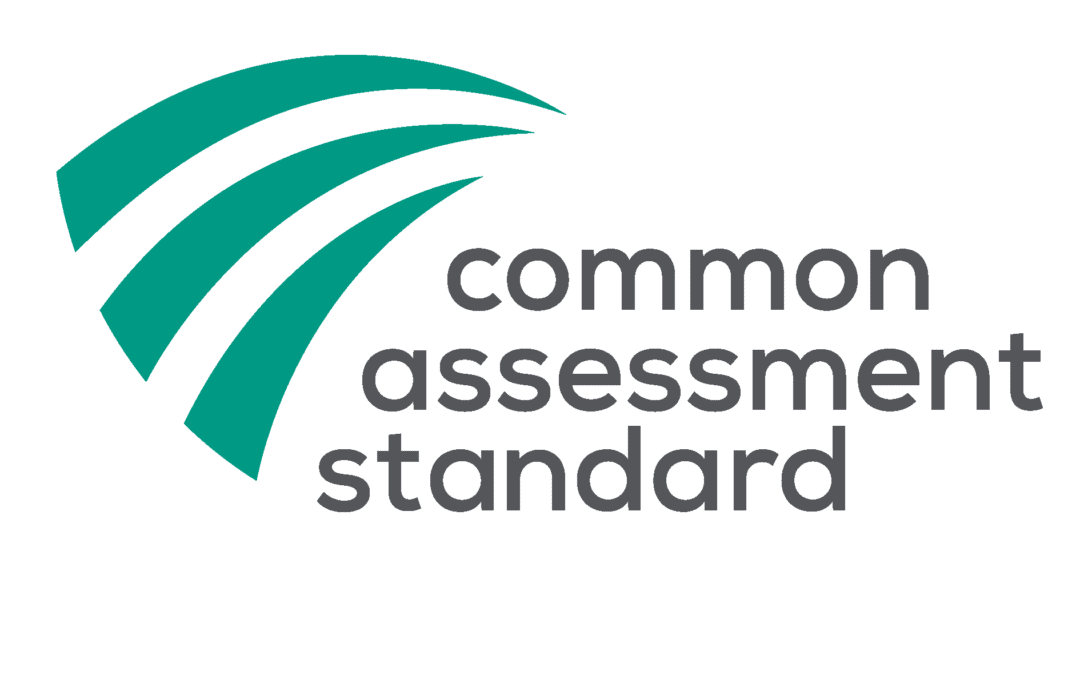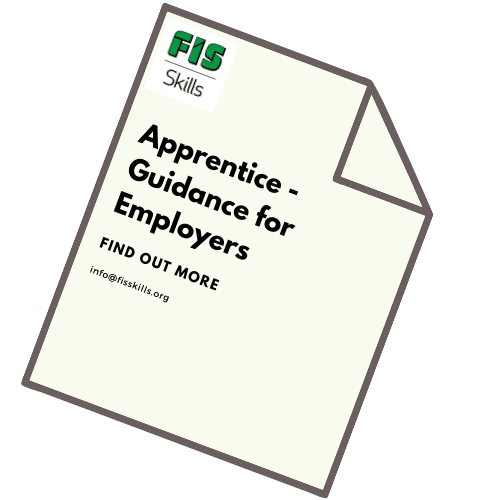
by Clair Mooney | Apr 6, 2021 | Skills
An estimated 11 million adults now have the opportunity to gain a new qualification for free, designed to help them to gain in-demand skills and secure great jobs.
Free courses for jobs as part of the Lifetime Skills Guarantee’s
As part of the Lifetime Skills Guarantee adults in England who are 24 and over and do not yet have A levels or equivalent can now take their first full level 3 qualification for free, building on the offer already available to 19 23 year olds. There are almost 400 qualifications available and all courses have been identified to help ensure good job prospects, focussing on areas where employers need skills and leading to job opportunities that can help adul ts earn a good wage.
Take advantage of the offer and help your staff upskill at gov.uk/free courses for jobs
The roll out marks a major milestone in the delivery of the landmark Lifetime Skills Guarantee – announced by the Prime Minister in September 2020. The Guarantee aims to transform the skills system so everyone, no matter where they live or their background, can gain the skills they need to progress in work at any stage of their lives. It will also ensure employers have access to the skilled workforce they need, and more people are trained for the skills gaps that exist now, and in the future.
Prime Minister Boris Johnson said: “As we cautiously lift lockdown restrictions, the government’s focus is on recovering from the pandemic and building back better.
“The Lifetime Skills Guarantee is fundamental to that – with free courses giving adults the expertise they need to find new, better jobs.
“My message is clear. At every stage of your life, we will help you get the skills you need to train, retrain, and get into jobs you want and our economy needs.”
As well as the free courses, as part of the Lifetime Skills Guarantee, thousands of adults have taken advantage of new Skills Bootcamps which offer free, flexible courses lasting up to 16 weeks covering areas including construction, digital and technical.
Skills Bootcamps – which are currently running in six areas of the country – provide a chance to learn specific skills and offer a fast-track to an interview with a local employer at the end. Skills Bootcamps will be expanded across the country later this year.
The government’s Skills for Jobs White Paper, published in January, enshrines the Lifetime Skills Guarantee – setting out landmark reforms that will realigning the post-16 education system around the needs of employers, so that people are trained for the skills gaps that exist now, and in the future, in sectors the economy needs, including construction, digital, clean energy and manufacturing.
The White Paper forms a key part of the government’s Plan for Jobs which is protecting, supporting and creating jobs across the country and will help everyone to benefit from the opportunities available to them.

by Clair Mooney | Mar 31, 2021 | Insurance, Market data
Significant cost increases and the introduction of new restrictions on professional indemnity (PI) insurance are preventing companies taking on projects and could delay essential work on building safety. These were the findings of a pan-industry survey of over 1,000 firms carried out by the Construction Leadership Council and published today.
The results pointed to widespread incidence of companies having to change the type of work they do because of restrictions on cover, with a quarter losing jobs because of tough conditions and limitations being placed on them by insurance firms. Even though two thirds of respondents said that less than 5% of what they do is high rise residential, almost one in three were unable to buy the cover they wanted or needed.
The survey was carried out from mid-February to mid-March and received 1,066 responses from a mixture of consultants, contractors and specialists. They also ranged in size with half of the respondents from companies with turnover below £2 million and 10% over £50 million.
The results* revealed that:
• Over 60% of total survey respondents have some form of restriction on cover relating to cladding or fire safety
• One in three of total survey respondents have a total exclusion in place for cladding claims
• One in five of respondents have a total exclusion in place for fire claims
• Over a quarter of total survey respondents have lost jobs as a result of inadequate PI insurance
• One in three respondents couldn’t do remedial work if they wanted to
• Almost a quarter of total survey respondents have changed the nature of their work due to inadequate PI insurance.
• Majority of respondents buy £10m or less cover with very few buying over £20m
• Almost half of respondents had been declined insurance by three insurers or more
• Two thirds of respondents are carrying a claim excess imposed upon them by their insurers
• Premiums have increased nearly 4-fold at the last renewal, having doubled the year before; the average rate is 4% of turnover but one in five who gave figures are paying more than 5% of their turnover for their PI insurance
This issue has been building for a while now and is starting to loom as our next crisis. The fact that 44% of businesses across the sector have been refused cover is telling and whilst 29% claim not to have been able to get the cover they need, the concern from conversations we have and analysis of cover is that I doubt many have cover they would consider ideal. Premiums continue to escalate and policies are contracting, everybody is paying for cover, but it isn’t aligned and there seems to have been little engagement from the insurance sector to address specific concerns rather than generic perceptions. Insurance is a financial service, but it needs to be engrained in the industry itself, it isn’t a just service, it is part of the infrastructure of the sector – we need to take a much closer look, as a supply chain. We need to consider carefully the role of options like integrated project insurance and wrapping insurance round the entire supply chain, ensuring insurance isn’t just another contract that seeks to write out risk, but is a core part of how we responsibly manage this. We welcome this work from the CLC – FIS is exploring a number of options for our sector, building on our Product Process People framework and, if any companies or individuals are interested in getting involved in our focus group, let me know.
FIS CEO Iain McIlwee
The survey results are available here
*For consistency all results are given as percentages of total respondents (1066), but some questions were answered by fewer respondents.

by Clair Mooney | Mar 31, 2021 | Main News Feed
From 6 April, companies with 10 or more employees who cannot work from home will be able to order home test kits for their employees where it is not possible to set up a testing site in the workplace.
The deadline to register for workplace testing has been extended until Monday 12 April 2021. Build UK has produced a useful guide summarising the process.
Access all the latest Covid-19 updates in our Covid Hub.

by Clair Mooney | Mar 30, 2021 | Main News Feed
Major contractors now adopting the Common Assessment Standard
Build UK has announced that the new industry-wide pre-qualification (PQ) system is now fully up and running, simplifying a complex system for the benefit of everyone in the construction sector. The rollout of the Common Assessment Standard will significantly reduce the duplication of time, effort and resources that are costing the sector up to £1 billion a year.
Major contractors and clients – including Balfour Beatty, Costain, HS2, Mace, Multiplex and Skanska – have all adopted the Common Assessment Standard meaning that members of their supply chains will need to obtain just one certification to tender for work with them. This follows the recent implementation of a new data sharing solution, which enables contractors and clients to obtain key PQ data from any one of three Recognised Assessment Bodies: Achilles, CHAS or Constructionline.
The Common Assessment Standard is an industry-agreed question set with two levels of certification – desktop and site-based – and companies can apply to any Recognised Assessment Body to get the appropriate level dependent upon their trade, size and requirements of their clients.
Created by Build UK with the support of CECA, the Common Assessment Standard is endorsed by the Construction Leadership Council (CLC), which is actively seeking its adoption throughout Government construction procurement, including the Construction Playbook.
Jo Fautley, Deputy Chief Executive of Build UK, said: “We’re delighted that the new system is now fully up and running and already being used by major contractors and clients. It’s been a collaborative effort, involving companies across the whole sector, and the new system is a huge step towards more efficient working, which is more important than ever in the current challenging economic climate.”
Neil Mant, Chair of the Interim Cross Industry Body, which has overseen the development of the new system, said: “The new PQ system is a huge step forward for construction. With a single Common Assessment Standard and data sharing now in place, we have not only eliminated a huge amount of costly duplication of effort but also raised the bar in assessing the competence of the supply chain. Supply chain companies will need certification from only one of the three Recognised Assessment Bodies, and contractors can continue to deal with the body they have an existing relationship with.”
Andy Mitchell, Chair of the CLC, said: “The CLC is delighted to endorse the Common Assessment Standard which is set to transform the construction PQ process. It is a real and practical way of reducing bureaucracy and improving quality in the industry and it comes at just the right time. Companies will be able to demonstrate that they meet an agreed industry standard, and clients and contractors will be able to rely on the certification. The CLC will be encouraging the adoption of the Common Assessment Standard throughout public and private sector procurement.”

by Clair Mooney | Mar 26, 2021 | Membership, Technical
To help specifiers understand the performance of wall mounted acoustic absorbers, FIS has published a new technical note, Specifying Acoustic Absorbers where they will be installed against a wall.
The sound quality of a room often doesn’t need a specialist to tell you that something is wrong. Whether it is an office, café or community space, it can sound like being in an unfurnished room and as people arrive it can become louder and louder for occupants. It is an issue that can be addressed by reducing reverberation caused by hard surfaces through the installation of acoustic absorbers on the walls.
The new guidance will help specifiers understand the acoustic and fire performance of wall mounted acoustic absorbers, acoustics and room acoustics, reverberation and absorption, conformity marking and importantly, their installation.
Iain McIlwee, Chief Executive of the FIS said: “The new technical note is aimed at anyone wanting to address noisy spaces by installing acoustic absorbers on the walls to reduce reverberation.”
This brief guidance provides information on how products are tested, what the results mean, what fire performance needs to be considered and what to look for in terms of how they should be installled so that they perform correctly.
“The positioning and installation of the absorbers can all have a big impact on the effect the absorbers will have, so it is important for specifiers to have all the informationduring the crucial specification stage ,” added Iain McIlwee.
The technical note is available to download at https://www.thefis.org/knowledge-hub/technical/fis-technical-notes-industry-alerts/

by Clair Mooney | Mar 26, 2021 | Main News Feed
The Government has confirmed that anyone who gets a positive result from a lateral flow device (LFD) test undertaken at home should get a PCR test to confirm the result. However, in the event of a positive result from an LFD test undertaken at a test site, a follow up PCR test is not required and the individual and anyone they live with must self‐isolate from 10 days from the date of the test.
Build UK has published a guide to the Government’s workplace testing programme, which provides an overview of the LFD testing process and the steps required to set up a test site. Members interested in offering workplace testing must register via the Government’s online portal by next Wednesday 31 March and tests will then be provided free of charge until the end of June.

by Clair Mooney | Mar 26, 2021 | Main News Feed
The Written Ministerial Statement by Housing Secretary Robert Jenrick permitting extended site working hours has been extended until 30 September 2021. The statement makes it clear that local planning authorities in England should not refuse requests to extend working hours on construction sites up to 9pm, Monday to Saturday, without very compelling reasons. In some cases, such as in areas without residential properties, 24‐hour working may be justified.
Requests should be made to the local planning authority which should aim to issue a decision within 10 working days, and the Government has published FAQs with further information.

by Clair Mooney | Mar 26, 2021 | Skills
A couple of weeks ago FIS sent the email message below to all members, to date CITB have received 19 replies. Without the weight of employers behind it these changes will be shelved until legislation makes it happen. As employer we prefer you to have control.
Following discussions with FIS Working Groups a request to change qualifications was submitted to the Standard Setting Body (SSB) for Construction. In order to meet regulatory requirements, the SSB must show they have consulted on these proposed changes as widely as possible across all four home nations. All of the changes proposed by FIS Working Groups are in a bid to keep people safe and are:
- Change the National Occupational Standards, Recommended Qualification Structure for Interior Systems level 2 by the addition of COSVR355 v3 Erect fire resisting walls and wall linings. This will provide a fire protection qualification outcome for dryliners.
- Add a new National Occupational Standard for service, maintain and repair of operable partition wall systems, as an option. It has been reported there have been accidents and near misses during these operations, the inclusion of this standard will provide a qualification route for individuals employed in this area. For a copy of the proposed draft standard please contact George Swann on 07553 874838 or email georgeswann@thefis.org
- In response to the Grenfell inquiry and the work on competence, insert under ‘methods of work’ as a requirement of knowledge ‘how fire spreads through a building, how to impede it and protect people and the structure’ to COSVR125, 126, 127, 129, 130, 133, 618, 620, 769, 770 all contained I the Recommended Qualification Structure Interior Systems level 2. By doing this the statement will cascade into all qualification outcomes (academic, trained and competence) derived from these standards thereby giving operatives the required knowledge.
If you agree with these changes, please copy and paste the following message and email it to Standards.qualifications@citb.co.uk with the subject header of Interior Systems NOS Changes:
Hello
This message is to show support for the changes requested via FIS Working Groups.
[Insert your normal signature block]
If you disagree with these changes, please explain the reason for your disagreement by email using the address above.
If you have any concerns or need additional information or to discuss the above, please don’t hesitate to contact George Swann on 07553 874838 or email georgeswann@thefis.org Many thanks in anticipation.

by Clair Mooney | Mar 25, 2021 | Skills
FIS Associate Member DMR Training has secured government National Vocational Qualification (NVQ) funding for the insulation sector in Greater Manchester, Lancashire and Sheffield City regions.
Based in Greater Manchester DMR is a construction training provider and has access to full funding to cover assessment in NVQ Level 2 in Insulation and Building Treatments. A number of pathways exist within this qualification including internal, external wall, cavity wall and loft insulation, all of which qualify for CSCS Skilled Worker ‘blue and ‘gold’ card applications. Funding makes these qualifications free of charge to FIS members.
DMR specialises in onsite NVQ assessment and has been helping construction industry workers gain vocational qualifications and CSCS cards since 2013. DMR Managing Director Dave Radley said, “When I set the company up eight years ago, it coincided with the start of the original Green Deal. We started to deliver qualifications within this area immediately as we felt that it was an important shift in the way the industry works and the effects on the economy. However, it never really took off as expected and demand simply wasn’t there, and government stopped supporting the scheme in 2015. I am delighted that the government is now supporting a green recovery and the retrofit of energy efficiency measures. The ten point plan for a green industrial revolution shows just how serious government are about making it happen this time.”
Dave went on to say, “We want to play our part in building back better, supporting green jobs and contributing to the goal of net zero. We’re looking forward to working with FIS members and helping them gain the qualifications they need for their business to be involved.”
This funding is no longer available but visit www.dmr-training.co.uk for more information
For more information on this and other funded training offers visit www.thefis.org/membership-hub/memberbenefits/member-benefits-training/training-offers-for-members/nvq-training-offers/

by Clair Mooney | Mar 25, 2021 | Skills
Following the reopening of schools and colleges, the Department for Education (DfE) has confirmed that on‐site training can resume for students of all ages in the following further education (FE) settings if a provider follows the operational guidance:
- Sixth form colleges
- General FE colleges
- Independent Training Providers (ITPs) ‐ defined as organisations that receive Education and Skills Funding Agency (ESFA) formula funding for the provision of 16 to 19 education
- Designated institutions
- Adult and Community Learning Providers (ACLPs)
- Special post‐16 institutions.
All FE providers should continue to follow pre‐COVID‐19 guidance for adult students and “judge the right balance between on‐site and remote delivery in order to provide high quality education and training”. Apprenticeship providers should also read the current apprenticeships guidance, which confirms that FE apprentices may now return to training and assessment in educational settings, in addition to the training and assessment that is currently permitted in the workplace where the apprentice cannot work from home and the workplace is COVID‐19 secure.
There has not been any further guidance issued about resuming face‐to‐face training in the workplace, and companies will need to determine if any training required can be undertaken remotely or is essential at this time, as they may be required to explain how they are complying with current restrictions.
Visit the FIS Skills Hub here to find out about our network of Approved Training Providers

by Clair Mooney | Mar 24, 2021 | Main News Feed
CLC has set out its mid-term strategy, which provides more detail on:
- Vision and strategic priorities
- The CLC’s delivery plan
- How the CLC works
- How the industry can get involved
In particular, the strategy sets out one year and three year plans against our priority themes, focused particularly on Building Safety and the Race to Net Zero Carbon.
A summary of outline work plans for the CLC’s workstreams and highlights of recent industry engagement is also given in the strategy.
The strategy can be found here.

by Clair Mooney | Mar 24, 2021 | Insurance, Main News Feed
CLC guidance on trade credit insurance during COVID-19 has been updated to reflect the latest financial information to provide brokers and underwriters.
The checklist has be refreshed to reflect current information requirements on financial performance.
Read the full guidance here.

by Clair Mooney | Mar 23, 2021 | Main News Feed
Applications for the Coronavirus Business Interruption Loan Scheme, Coronavirus Large Business Interruption Loan Scheme and Bounce Back Loan Scheme will close on 31 March.
The new Recovery Loan Scheme offering Government‐backed loans of up to £10 million per business will launch on 6 April and remain open until 31 December.

by Clair Mooney | Mar 23, 2021 | Main News Feed
Procurement Policy Note (PPN) 07/20 will come into force from 1 April, increasing the prompt payment threshold for suppliers bidding for Government contracts above £5 million per annum. Suppliers will be required to show that they pay 85% of invoices within 60 days and have an action plan in place to achieve the required standard of 95% in future, otherwise they risk being prevented from bidding. Currently a company can still pass if they pay 75% of invoices within 60 days and submit an action plan, and the Cabinet Office has been clear that the threshold ‘will be ratcheted up over time until it reaches 95%’.
Build UK continues to publish information on the payment performance of the industry’s largest companies, which includes the percentage of invoices paid within 60 days.

by Clair Mooney | Mar 23, 2021 | Skills
In response to various feedback, CITB has confirmed the introduction of a revised grace period to Site Safety certificates. This will provide support to delegates who are unable to access a Site Safety refresher courses, due to the new lockdown measures.
Individuals now have until 30 April 2021 to join a SSSTS or SMSTS refresher course if their current certificate expires after 1 October 2020. Any delegate whose certificate expired before the 1 October 2020 and does not attend a refresher course before 31 January 2021, will be required to join a full SSSTS or SMSTS course, rather than the refresher equivalent. Find the centres delivering remote refresher training here.
If your organisation is struggling to get places on courses please let us know via info@thefis.org and if the numbers are high enough FIS will request a further extension to these dates on behalf of members.

by Clair Mooney | Mar 22, 2021 | Main News Feed
Updated advice on ventilation and air conditioning during the pandemic
HSE has updated and expanded its advice to help employers provide adequate ventilation in their workplaces during the pandemic. This guidance builds on helping to identify and take action in poorly ventilated areas.It also provides guidance on other factors to consider when assessing the risk from aerosol transmission, and determining whether adequate ventilation is being provided to reduce this risk.
You should be maximising the fresh air in a space and this can be done by:
- natural ventilation
which relies on passive air flow through windows, doors and air vents that can be fully or partially opened
- mechanical ventilation
using fans and ducts to bring in fresh air from outside, or
- a combination of natural and mechanical ventilation, for example where mechanical ventilation relies on natural ventilation to maximise fresh air
Read the updated guidance and find out how you can provide adequate ventilation in your workplace, helping to protect workers and other people from transmission of coronavirus.
Updated advice on talking with your workers about preventing coronavirus
The law says you must consult with your workers about reducing risks from coronavirus in your workplace. HSE has updated its guidance to help you have conversations with your workforce about providing support and keeping control measures in place.
Talking to your workers means you can explain changes you’re making to keep the workplace COVID-secure and continue to run your business safely. It also gives workers the chance to:
- tell you if they’re worried about any workplace risks
- influence decisions about health and safety
HSE has converted this advice to web pages so it is easier for people to find the information they need and we have expanded the guidance to include more advice on:
- supporting higher-risk groups
- returning to the workplace
- ventilation and air conditioning
- stress, mental health and wellbeing
The updated guidance will help you keep in touch with workers and support them as restrictions are eased in the coming months.

by Clair Mooney | Mar 19, 2021 | Membership
FIS has launched a new video to help support understanding of the process and values behind the Acoustic Verification Scheme.
This verification scheme was established in 2019 to introduce standard methodology and support honest and consistent declaration of acoustic performance, encouraging best practice and preventing inaccurate or misleading information from undermining the market and responsible manufacturers.
The video explains simply how products are tested and how the verification process helps specifiers and contractors to specify and select products safe in the knowledge that they will meet the expected performance.
The FIS Acoustic Verification Scheme currently covers partitions and operable walls. FIS Member Linear Group uses the scheme to support their work.
Stephen Holmes CEO, Linear Group states: “We have now adopted the FIS Acoustic Verification Scheme on all relevant specifications for Linear Group. The scheme helps us to short-cut a complex verification process, safe in the knowledge that the test evidence we are confronted with has been interrogated and is both accurate in itself and we can be confident that the product we are installing will perform as designed.
Acoustics is a complex space and information can be misleading – this scheme gives us the reassurance we need as a contractor and we can pass this reassurance on to the customer.”
FIS CEO, Iain McIlwee added:
“The launch of the scheme has been really encouraging for two reasons, firstly as it is helping to make a difference in terms of winning back trust and supporting acoustic specification, but also because it is the embodiment of FIS values. The scheme is about the industry deciding that there is a better way and doing something about it to regain and build trust, it is our community in action and I am proud to be part of it – FIS draws no income from running the scheme, it is, like FIS not for profit, but all about values and value. We are encouraging all members who have products in scope to get their products verified and those installing and specifying to ensure that are checking products are verified.”
Currently the FIS Acoustic Verification covers Operable Walls and Partitions, but a working group is being formed to look at Pod products. The verification work is done in batches and FIS is intending to put the next verification batch through before the end of April. If you would like more information on the process email iainmcilwee@theife.org.
To watch the video and find out more about the scheme you can visit the FIS Acoustic Verification Hub here

by Clair Mooney | Mar 19, 2021 | Main News Feed
HSE inspection indicate how industry has stepped up
BuildUK reported to the House of Commons Work and Pensions Committee this week, within the report was the update that the HSE which has visited 4,300 construction sites, with 10% being sent written correspondence and just 2% being served with an Improvement Notice.
As lockdown starts to ease over the coming weeks it is vital now that industry continues to monitor and manage sites effectively.
You can visit the FIS COVID-19 H&S Toolbox for all up to date information here.
An update on lockdown easing across the UK
The Scottish Government has confirmed that the current ‘Stay at Home’ order will be updated to ‘Stay Local’ from Friday 2 April and this will be in place for at least three weeks. From Monday 5 April, additional students (including those on engineering and construction courses) will be allowed to resume face‐to‐face learning at colleges, and those at greatest risk of not completing their courses will be prioritised. From Monday 26 April, all restrictions on travel within Scotland will be lifted and non‐essential work will be permitted to resume inside other people’s homes.
In England, the ‘Stay at Home’ order will be updated to ‘Stay Local’ from Monday 29 March with outdoor gatherings of either six people or two households permitted. Wales has already moved to ‘Stay Local’ restrictions and these will be lifted from Saturday 27 March. In Northern Ireland, the ‘Stay at Home’ provision will be removed from legislation on Monday 12 April.
Latest lockdown rules in Scotland
Latest Lockdown rules in England
Latest Lockdown rules in Wales
Latest Lockdown rules in Northern Ireland
Vital updates on workplace testing
You will hopefully have seen the news that all businesses can now apply to and benefit from free workplace testing (so long as you apply to join the scheme before 31st March).
One area that has reared its head in recent discussions is the need to review policy for individuals who have had the illness. Anyone who has previously received a positive COVID-19 PCR test result should not be re-tested within 90 days of that test, that is unless they develop any new symptoms of COVID-19. It is important to consider how this is managed, but there is a danger of false positives.
Finally on testing, questions have arisen around whether site admission can be refused if an individual refuses to test. Here we should look to the Health and Safety at Work Act, whilst you can’t force someone to test, your consideration is whether you are acting to protect your workforce and in so doing need to refuse admission to site.
More on testing here

by Clair Mooney | Mar 18, 2021 | Skills
The cap on apprenticeship starts for small employers will be reset to zero from April 2021. It means that any non-levy paying business can start up to 10 new apprentices from 1 April 2021 regardless of the number they currently employ. The cap will be kept under review during the next financial year.
Non-levy-paying businesses have been capped on the number of apprentices they can put through the digital apprenticeship service since January 2020 – starting with a limit of three before increasing to 10 in July – to ensure the overall apprenticeships budget is not overspent. The digital service was launched in April 2017 but was only for levy-paying employers to manage and spend their apprenticeship funding. Small employers will fully transition onto the service next month, meaning that all apprenticeship starts must now go through the system rather than procured non-levy contracts held by training providers.
Announcing the cap reset, the Education and Skills Funding Agency (ESFA) head of apprenticeship operations Jason Poole said: “The cap is there to help with the overall spend controls that we need to have in place for the whole apprenticeship programme. As we’ve moved away from individual provider contracts, we still need a way to be able to monitor and manage the flow of funding. As we are now moving from the beginning of next month to have all new starts on the service, I am really pleased to confirm that from 1 April, we will be resetting that total. There are quite a lot of employers now who have started to use those reservations and an increasing number that have got up to their limit of 10.”
Apprentice “reservations” made by small employers before April which convert to starts beyond next month will not count in the new 10 pot. As Poole pointed out, the cap was first imposed owing to concern that the amount of money not being spent by levy payers wouldn’t be enough if the government allowed small employers to have as many starts as they wanted. But, in the past year starts have dropped dramatically across England because of the pandemic and the overall apprenticeships budget is expected to be underspent this year.
ESFA also announced that the reservation period for employers who do not pay the apprenticeship levy is being extended from three to six months from 1 April 2021. This means that these employers will be able to reserve funds up to six months before an apprenticeship is planned to start.
Have a look at the FIS Apprentice – Guidance for Employers for details of support available for taking on an apprentice. If you would like any further information, don’t hesitate to contact us on 0121 707 0077 or email info@thefis.org

by Clair Mooney | Mar 18, 2021 | Skills
Hiring an apprentice is a productive and effective way to grow talent and develop a motivated, skilled and qualified workforce. Incentive payments are available to employers, but differ across each home nation.
Wales
The Employer Incentive Scheme in Wales will now run until 30 September 2021. Businesses can claim up to £4,000 (increased from £3,000) for each new apprentice they hire under the age of 25 (for at least 30 hours per week) and to £2,000 for under 30 hours. For workers aged 25 and over, businesses can access £2,000 for each new apprentice they hire on a 30 hour+ and a £1,000 incentive for apprentices working less than 30 hours. Payments are restricted to 10 learners per business and dedicated funding is also available to recruit disabled people and for workers who lost a previous apprenticeship position because of COVID-19.
Scotland
The grant will provide:
- £5,000 for employers taking on or upskilling a 16 to 24-year old apprentice, and for those aged up to 29 years who are disabled, care leavers and minority ethnic
- £3,500 for employers taking on or upskilling an apprentice aged 25 plus
England and Northern Ireland
Employers will receive £3,000 for new employees of any age who start their apprenticeship from 1 April 2021 to 30 September 2021. The incentive payment is in addition to the £1,000 employers already receive for hiring an apprentice, aged 16 to 18 years old or under 25 with an education, health and care plan or who has been in the care of their local authority.
Visit the Skills Hub for more information on taking on an apprentice and qualifying your workforce.


















